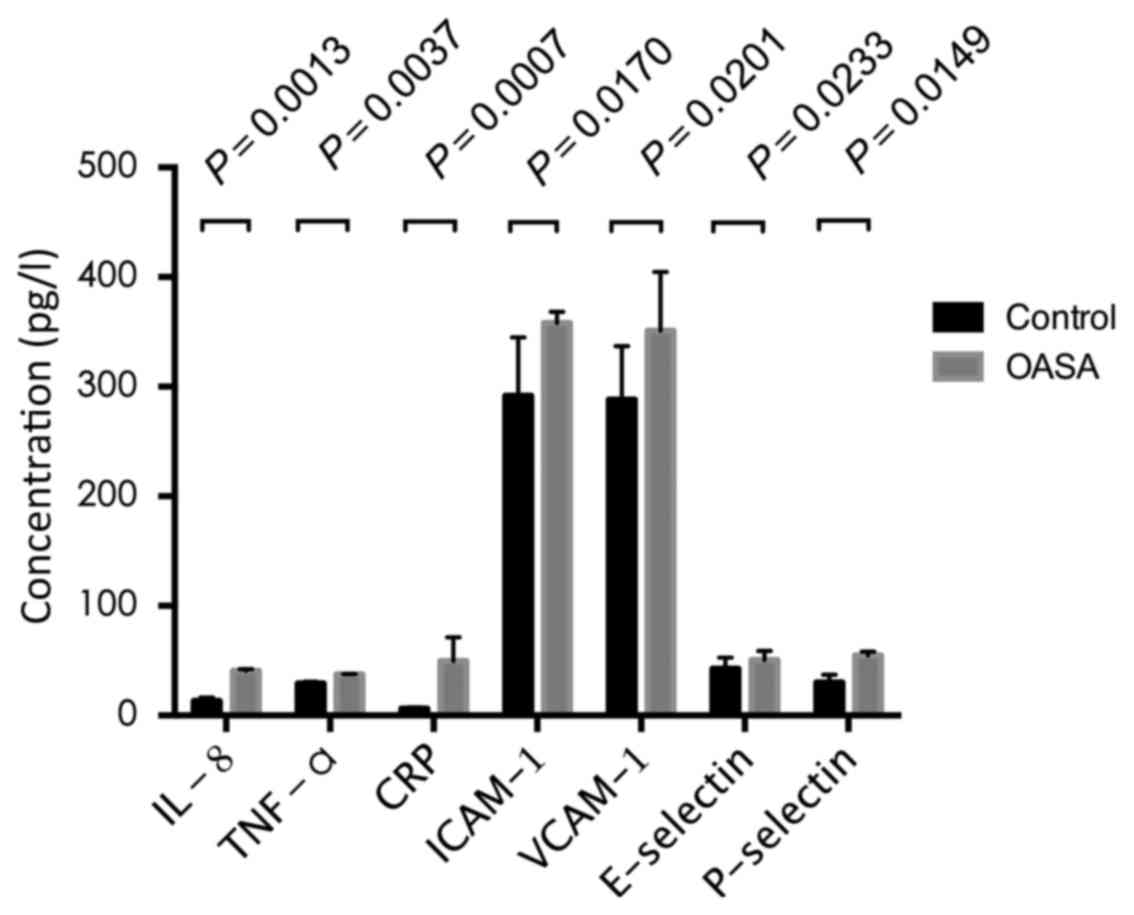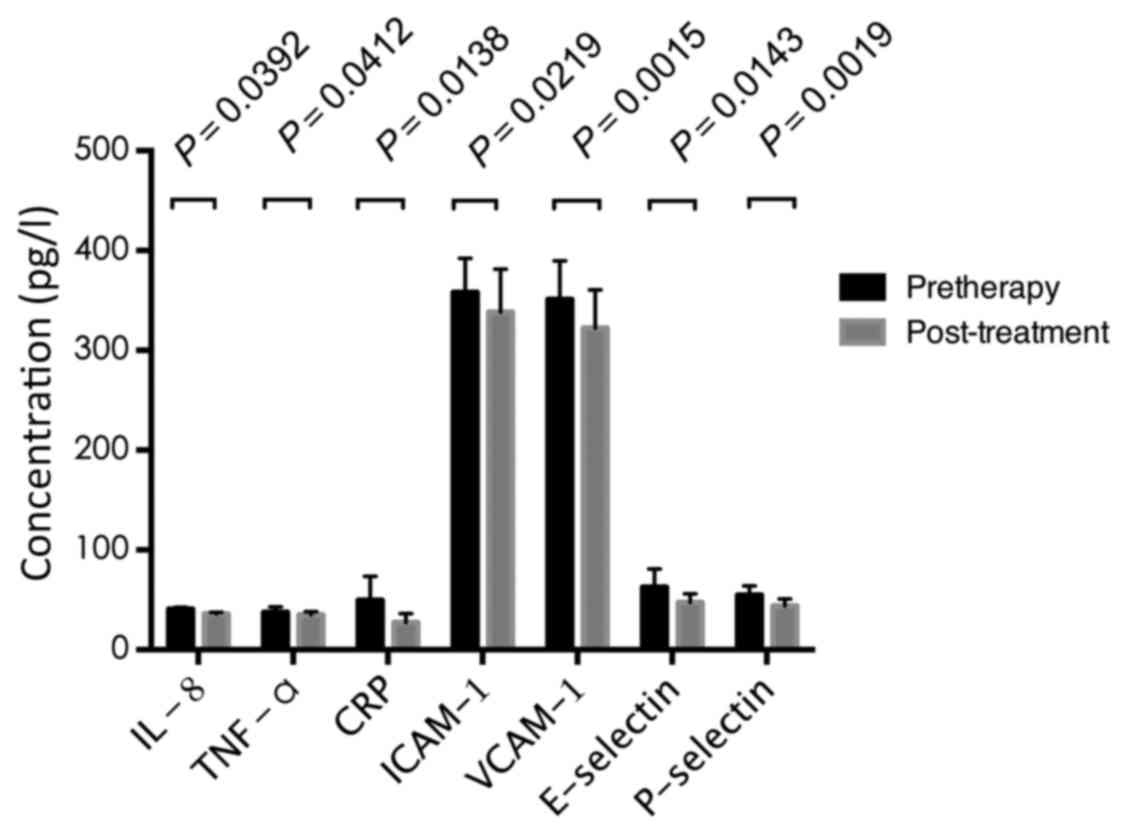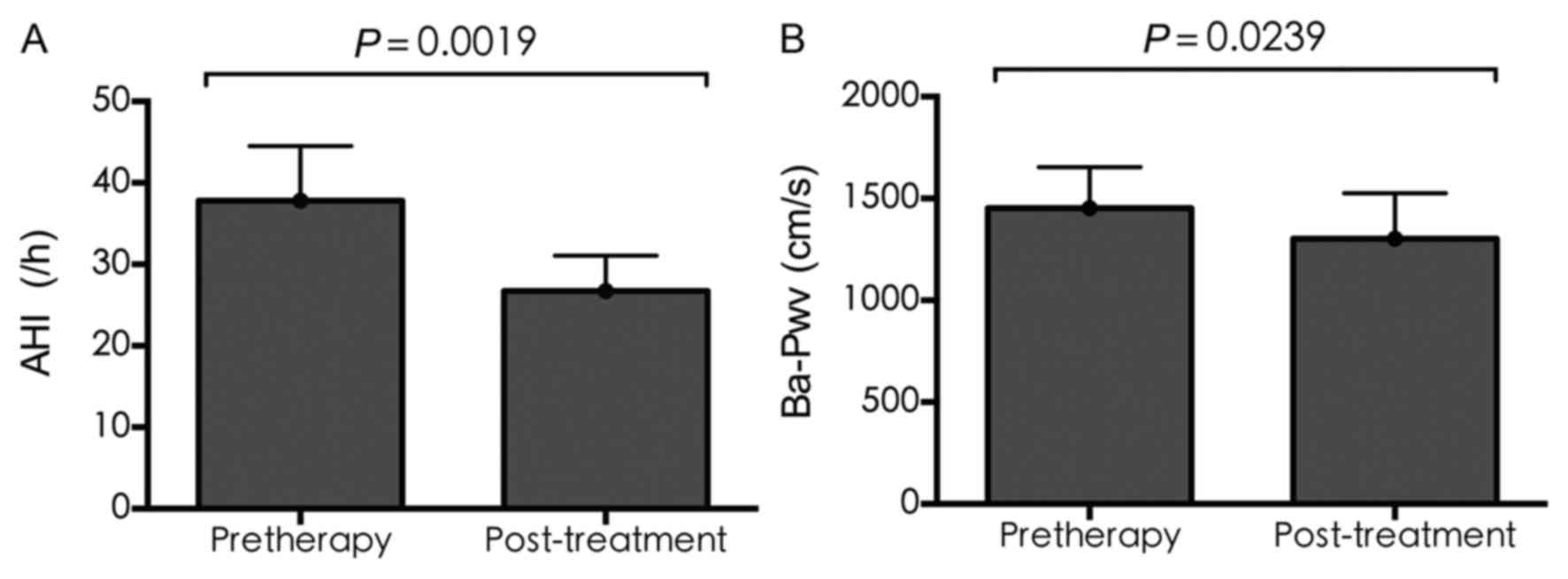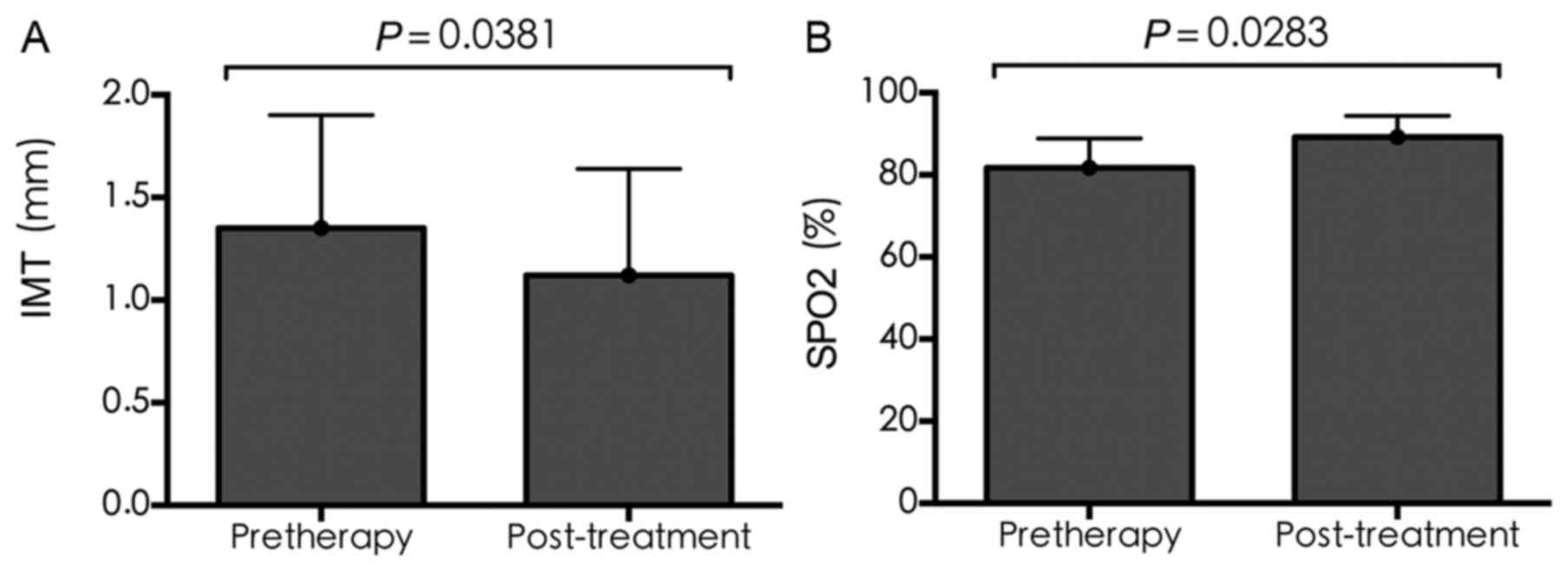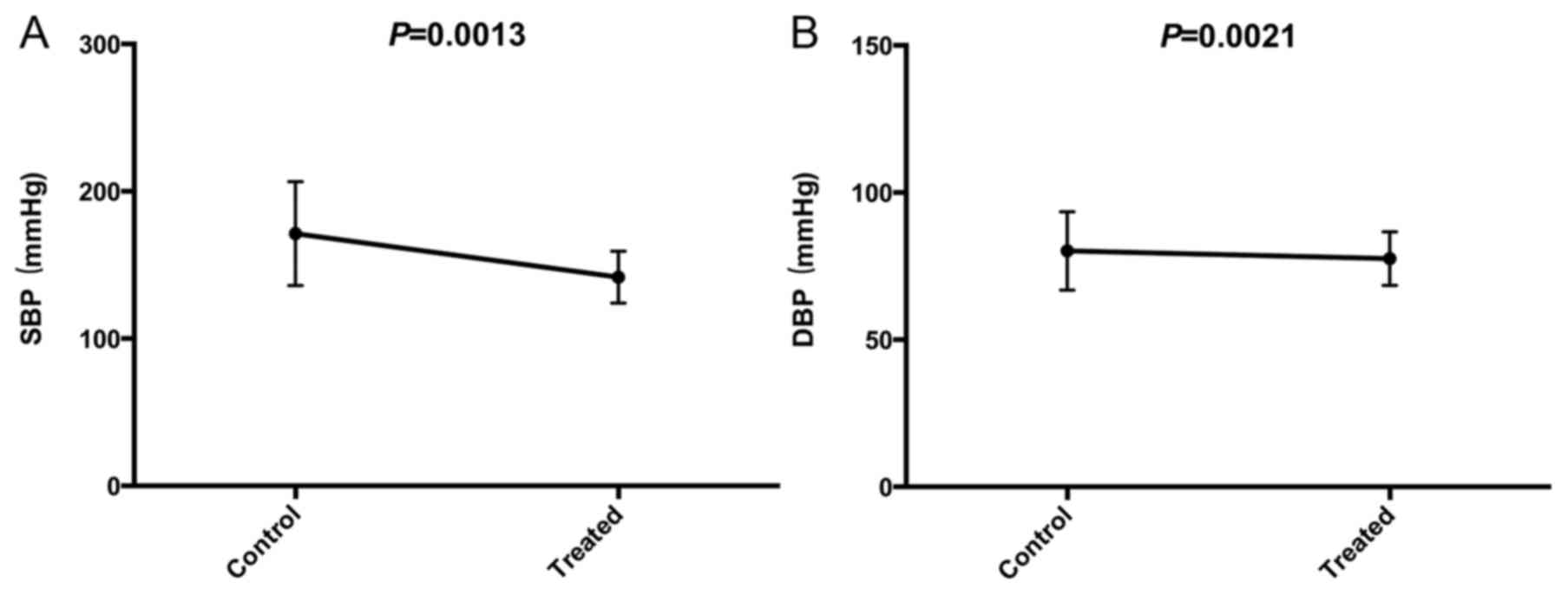|
1
|
Ulrich S, Nussbaumer-Ochsner Y, Vasic I,
Hasler E, Latshang TD, Kohler M, Muehlemann T, Wolf M and Bloch KE:
Cerebral oxygenation in patients with OSA: Effects of hypoxia at
altitude and impact of acetazolamide. Chest. 146:299–308. 2014.
View Article : Google Scholar : PubMed/NCBI
|
|
2
|
Hollier CA, Harmer AR, Maxwell LJ, Menadue
C, Willson GN, Unger G, Flunt D, Black DA and Piper AJ: Moderate
concentrations of supplemental oxygen worsen hypercapnia in obesity
hypoventilation syndrome: A randomised crossover study. Thorax.
69:346–353. 2014. View Article : Google Scholar : PubMed/NCBI
|
|
3
|
Yamaguchi K, Inoue Y, Ohki N, Satoya N,
Inoue F, Maeda Y, Sekiguchi H, Suzuki M, Tsuji T, Aoshiba K and
Nagai A: Gender-specific impacts of apnea, age, and BMI on
parasympathetic nerve dysfunction during sleep in patients with
obstructive sleep apnea. PLoS One. 9:e928082014. View Article : Google Scholar : PubMed/NCBI
|
|
4
|
Cha J, Zea-Hernandez JA, Sin S,
Graw-Panzer K, Shifteh K, Isasi CR, Wagshul ME, Moran EE, Posner J,
Zimmerman ME and Arens R: The effects of obstructive sleep apnea
syndrome on the dentate gyrus and learning and memory in children.
J Neurosci. 37:4280–4288. 2017. View Article : Google Scholar : PubMed/NCBI
|
|
5
|
Dal-Fabbro C, Garbuio S, D'Almeida V,
Cintra FD, Tufik S and Bittencourt L: Mandibular advancement device
and CPAP upon cardiovascular parameters in OSA. Sleep Breath.
18:749–759. 2014. View Article : Google Scholar : PubMed/NCBI
|
|
6
|
Marin JM, Artal J, Martin T, Carrizo SJ,
Andres M, Martin-Burriel I, Bolea R, Sanz A, Varona L, Godino J, et
al: Epigenetics modifications and subclinical atherosclerosis in
obstructive sleep apnea: The EPIOSA study. BMC Pulm Med.
14:1142014. View Article : Google Scholar : PubMed/NCBI
|
|
7
|
Mutlu M, Vuralkan E, Akaydin S Yardim,
Akin I and Miser E: Effects of adenoid/tonsillectomy on
inflammatory response in snoring children with witnessed apnoea.
Clin Otolaryngol. 39:266–271. 2014. View Article : Google Scholar : PubMed/NCBI
|
|
8
|
Parra O, Sánchez-Armengol Á, Capote F,
Bonnin M, Arboix A, Campos-Rodríguez F, Pérez-Ronchel J,
Durán-Cantolla J, Martínez-Null C, de la Peña M, et al: Efficacy of
continuous positive airway pressure treatment on 5-year survival in
patients with ischaemic stroke and obstructive sleep apnea: A
randomized controlled trial. J Sleep Res. 24:47–53. 2015.
View Article : Google Scholar : PubMed/NCBI
|
|
9
|
Batool-Anwar S, Goodwin JL, Drescher AA,
Baldwin CM, Simon RD, Smith TW and Quan SF: Impact of CPAP on
activity patterns and diet in patients with obstructive sleep apnea
(OSA). J Clin Sleep Med. 10:465–472. 2014.PubMed/NCBI
|
|
10
|
Shahid ML, Chitiboi T, Ivanovska T,
Molchanov V, Völzke H and Linsen L: Automatic MRI segmentation of
para-pharyngeal fat pads using interactive visual feature space
analysis for classification. BMC Med Imaging. 17:152017. View Article : Google Scholar : PubMed/NCBI
|
|
11
|
Augelli DM and Krieger AC: Social and
economic impacts of managing sleep hypoventilation syndromes. Sleep
Med Clin. 12:87–98. 2017. View Article : Google Scholar : PubMed/NCBI
|
|
12
|
Lin CC, Liaw SF, Chiu CH, Chen WJ, Lin MW
and Chang FT: Effects of nasal CPAP on exhaled SIRT1 and tumor
necrosis factor-α in patients with obstructive sleep apnea. Respir
Physiol Neurobiol. 228:39–46. 2016. View Article : Google Scholar : PubMed/NCBI
|
|
13
|
Yilmaz YF, Kum RO, Ozcan M, Gungor V and
Unal A: Drug-induced sleep endoscopy versus Muller maneuver in
patients with retropalatal. Laryngoscope. 125:2220–2225. 2015.
View Article : Google Scholar : PubMed/NCBI
|
|
14
|
Hui DS, Shang Q, Ko FW, Ng SS, Szeto CC,
Ngai J, Tung AH, To KW, Chan TO and Yu CM: A prospective cohort
study of the long-term effects of CPAP on carotid artery
intima-media thickness in obstructive sleep apnea syndrome. Respir
Res. 13:222012. View Article : Google Scholar : PubMed/NCBI
|
|
15
|
Qaseem A, Holty JE, Owens DK, Dallas P,
Starkey M and Shekelle P: Clinical Guidelines Committee of the
American College of Physicians: Management of obstructive sleep
apnea in adults: A clinical practice guideline from the American
College of Physicians. Ann Intern Med. 159:471–483. 2013.PubMed/NCBI
|
|
16
|
Niżankowska-Jędrzejczyk A, Almeida FR,
Lowe AA, Kania A, Nastałek P, Mejza F, Foley JH,
Niżankowska-Mogilnicka E and Undas A: Modulation of inflammatory
and hemostatic markers in obstructive sleep apnea patients treated
with mandibular advancement splints: A parallel, controlled trial.
J Clin Sleep Med. 10:255–262. 2014.PubMed/NCBI
|
|
17
|
Ursavas A, Karadağ M, Rodoplu E,
Yilmaztepe A, Oral HB and Gözü RO: Circulating ICAM-1 and VCAM-1
levels in patients with obstructive sleep apnea syndrome.
Respiration. 74:525–532. 2007. View Article : Google Scholar : PubMed/NCBI
|
|
18
|
Ryan S and McNicholas WT: Inflammatory
cardiovascular risk markers in obstructive sleep apnoea syndrome.
Cardiovasc Hematol Agents Med Chem. 7:76–81. 2009. View Article : Google Scholar : PubMed/NCBI
|
|
19
|
Utriainen KT, Airaksinen JK, Polo O,
Laitio R, Pietilä MJ, Scheinin H, Vahlberg T, Leino KA, Kentala ES,
Jalonen JR, et al: Sleep apnoea is associated with major cardiac
events in peripheral arterial disease. Eur Respir J. 43:1652–1660.
2014. View Article : Google Scholar : PubMed/NCBI
|
|
20
|
Archontogeorgis K, Nena E, Papanas N and
Steiropoulos P: Biomarkers to improve diagnosis and monitoring of
obstructive sleep apnea syndrome: Current status and future
perspectives. Pulm Med. 2014:9305352014. View Article : Google Scholar : PubMed/NCBI
|
|
21
|
Tual-Chalot S, Gagnadoux F, Trzepizur W,
Priou P, Andriantsitohaina R and Martinez MC: Circulating
microparticles from obstructive sleep apnea syndrome patients
induce endothelin-mediated angiogenesis. Biochim Biophys Acta.
1842:202–207. 2014. View Article : Google Scholar : PubMed/NCBI
|
|
22
|
Lin CC, Wang YP, Lee KS, Liaw SF and Chiu
CH: Effect of uvulopalatopharyngoplasty on leptin and endothelial
function in sleep apnea. Ann Otol Rhinol Laryngol. 123:40–46. 2014.
View Article : Google Scholar : PubMed/NCBI
|
|
23
|
Buratti L, Viticchi G, Falsetti L,
Cagnetti C, Luzzi S, Bartolini M, Provinciali L and Silvestrini M:
Vascular impairment in Alzheimer's disease: The role of obstructive
sleep apnea. J Alzheimers Dis. 38:445–453. 2014.PubMed/NCBI
|
|
24
|
Deleanu OC, Malaut AE, Nebunoiu AM, Micheu
MM and Mihălţan FD: Obstructive sleep apnea syndrome and arterial
hypertension-a complicated relationship? The role of controlling
blood pressure values in patients with OSAS. Pneumologia. 63:36–43.
2014.PubMed/NCBI
|
|
25
|
Sasaki N, Ozono R, Yamauchi R, Teramen K,
Edahiro Y, Ishii K, Seto A and Kihara Y: The relationship between
morning hypertension and sleep quality in patients with obstructive
sleep apnea syndrome. Clin Exp Hypertens. 35:250–256. 2013.
View Article : Google Scholar : PubMed/NCBI
|
|
26
|
Eda S Alves, Ackel-D'Elia C, Luz GP, Cunha
TC, Carneiro G, Tufik S, Bittencourt LR and de Mello MT: Does
physical exercise reduce excessive daytime sleepiness by improving
inflammatory profiles in obstructive sleep apnea patients? Sleep
Breath. 17:505–510. 2013. View Article : Google Scholar : PubMed/NCBI
|
|
27
|
Nizam N, Basoglu OK, Tasbakan MS,
Nalbantsoy A and Buduneli N: Salivary cytokines and the association
between obstructive sleep apnea syndrome and periodontal disease. J
Periodontol. 85:e251–e258. 2014. View Article : Google Scholar : PubMed/NCBI
|
|
28
|
Papandreou C: Levels of TBARS are
inversely associated with lowest oxygen saturation in obese
patients with OSAS. Sleep Breath. 17:1319–1322. 2013. View Article : Google Scholar : PubMed/NCBI
|
|
29
|
Papandreou C: Independent associations
between fatty acids and sleep quality among obese patients with
obstructive sleep apnoea syndrome. J Sleep Res. 22:569–572. 2013.
View Article : Google Scholar : PubMed/NCBI
|
|
30
|
Hopps E, Canino B, Calandrino V, Montana
M, Lo Presti R and Caimi G: Lipid peroxidation and protein
oxidation are related to the severity of OSAS. Eur Rev Med
Pharmacol Sci. 18:3773–3778. 2014.PubMed/NCBI
|
|
31
|
Baysal E, Taysi S, Aksoy N, Uyar M, Celenk
F, Karatas ZA, Tarakcioglu M, Bilinç H, Mumbuç S and Kanlikama M:
Serum paraoxonase, arylesterase activity and oxidative status in
patients with obstructive sleep apnea syndrome (OSAS). Eur Rev Med
Pharmacol Sci. 16:770–774. 2012.PubMed/NCBI
|
|
32
|
Basoglu OK, Vardar R, Tasbakan MS, Ucar
ZZ, Ayik S, Kose T and Bor S: Obstructive sleep apnea syndrome and
gastroesophageal reflux disease: The importance of obesity and
gender. Sleep Breath. 19:585–592. 2015. View Article : Google Scholar : PubMed/NCBI
|
|
33
|
Pulixi EA, Tobaldini E, Battezzati PM,
D'Ingianna P, Borroni V, Fracanzani AL, Maggioni M, Pelusi S,
Bulgheroni M, Zuin M, et al: Risk of obstructive sleep apnea with
daytime sleepiness is associated with liver damage in non-morbidly
obese patients with nonalcoholic fatty liver disease. PLoS One.
9:e963492014. View Article : Google Scholar : PubMed/NCBI
|















